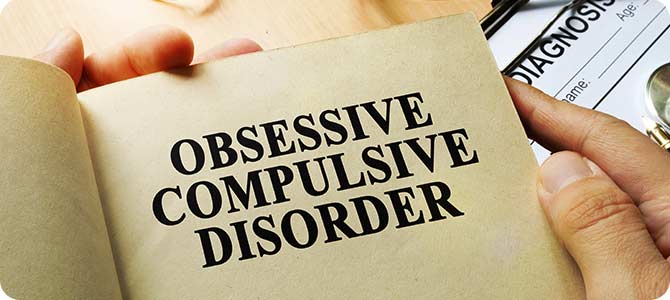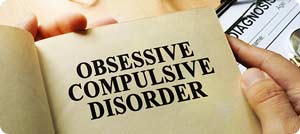OCD Diagnosis Clinic Q&A
Obsessive-Compulsive Disorder (OCD) diagnosis involves a comprehensive evaluation by a mental health professional, assessing the presence of persistent, intrusive thoughts (obsessions) and repetitive behaviors (compulsions). This evaluation typically includes clinical interviews, questionnaires, and sometimes standardized diagnostic tools to distinguish OCD from other mental health conditions. For more information, contact us today or book an appointment online. We have convenient locations to serve you in Jacksonville, Boynton Beach, Palm Beach Gardens, Stuart, Royal Palm Beach, Port St. Lucie, Melbourne, Fort Lauderdale, and Jupiter, FL.




Table of Contents:
What are the criteria for diagnosing OCD?
How does OCD impact daily life?
Can OCD symptoms vary over time?
What are common triggers for OCD?
How can one differentiate between OCD and general anxiety?
Obsessive-Compulsive Disorder (OCD) is diagnosed based on specific criteria outlined in the Diagnostic and Statistical Manual of Mental Disorders, Fifth Edition (DSM-5). To receive a diagnosis of OCD, an individual must exhibit the presence of obsessions, compulsions, or both. The individual often attempts to ignore or suppress these intrusive thoughts or neutralize them with some other thought or action (i.e., a compulsion). For a diagnosis, the obsessions or compulsions must be time-consuming (taking more than one hour per day) or cause clinically significant distress or impairment in social, occupational, or other important areas of functioning. The symptoms must not be attributable to the physiological effects of a substance or another medical condition.
Obsessive-Compulsive Disorder (OCD) can significantly impact daily life, often creating substantial challenges for those affected. The persistent and intrusive nature of obsessions can dominate a person’s thoughts, leading to intense anxiety and distress. This mental preoccupation can make it difficult to focus on everyday tasks, reducing productivity and causing disruptions in both personal and professional settings.
Compulsions, the repetitive behaviors or mental acts performed to alleviate the anxiety caused by obsessions, can be equally disruptive. These actions often consume considerable time and energy, making it hard for individuals to adhere to schedules or complete tasks efficiently.
Yes, OCD symptoms can indeed vary over time for individuals affected by the disorder. The presentation and intensity of symptoms can fluctuate due to a variety of factors, including stress levels, life changes, and access to treatment. In some cases, symptoms may wax and wane, with periods of relative calm followed by times of heightened intensity. For instance, during stressful periods such as exams, job changes, or relationship difficulties, obsessions and compulsions may increase in frequency and severity.
What may have initially been a focus on cleanliness and organization, for example, could later shift to fears about harm or symmetry. Changes in obsessions and compulsions may occur as individuals develop new triggers or coping mechanisms
Common triggers for OCD can vary widely among individuals but often involve situations or thoughts that provoke anxiety or distress. One of the primary triggers is stress, whether from work, school, relationships, or life changes. Increased stress levels can exacerbate existing OCD symptoms or trigger new ones. Another common trigger is uncertainty or situations where the outcome is unpredictable, as this can intensify the need for control that individuals with OCD often experience.
Specific fears or concerns, such as contamination (fear of germs or dirt), harm (fear of causing harm to oneself or others), or symmetry (a need for things to be perfectly aligned), can also trigger OCD symptoms. These fears can lead to compulsive behaviors aimed at neutralizing the anxiety associated with the obsessions. Additionally, certain environments or situations that remind individuals of past traumatic experiences or trigger intrusive thoughts can act as triggers for OCD symptoms.
Distinguishing between OCD (Obsessive-Compulsive Disorder) and general anxiety involves understanding the specific characteristics and patterns of each condition. OCD is characterized by the presence of obsessions and/or compulsions that significantly interfere with daily life. Obsessions are intrusive and distressing thoughts, urges, or images that repeatedly enter the mind, causing anxiety. Compulsions are aimed at reducing anxiety or preventing a feared outcome, but they are not realistically connected to the issue they are meant to address.
In contrast, general anxiety disorder (GAD) involves excessive worry and anxiety about a wide range of events or activities. People with GAD often experience persistent, uncontrollable anxiety and find it difficult to manage their worries. Unlike OCD, where the anxiety is specifically linked to obsessions and compulsions, in GAD, the anxiety is more generalized and not necessarily tied to specific thoughts or behaviors. Individuals with GAD may worry about various aspects of their lives, such as health, finances, work, or relationships, without the presence of compulsive behaviors aimed at reducing this anxiety.
A Path Toward Freedom from OCD, with Our Team
At Psychiatry of the Palm Beaches, our team gives patients the tools and guidance they need to move forward with less fear and less compulsive pressure. Our care helps individuals reclaim their lives with strength and clarity. For more information, please contact us or book an appointment online. Our staff is here to guide you toward a path of healing and improved mental wellness. We serve patients from Boynton Beach FL, Delray Beach FL, Palm Beach Gardens FL, Jupiter FL, Stuart FL, Palm City FL, Royal Palm Beach FL, Wellington FL, Citrus Ridge FL, Jacksonville FL, Riverside FL, Port St. Lucie FL, Beau Rivage West FL, Melbourne FL, Palm Bay FL, Fort Lauderdale FL, Hollywood FL, Jupiter FL, North Palm Beach FL, and surrounding areas.
Check Out Our 5 Star Reviews



Additional Services You May Need
▸ Mental Wellness
▸ Relationship Coaching
▸ Depression and Mood Disorders
▸ Women’s Health
▸ Panic Disorder
▸ Medications Management
▸ Men’s Health
▸ Individual Psychotherapy
▸ Bipolar
▸ ADHD
▸ Geriatric Mental Health
▸ Couple’s Counseling
▸ Obsessive Compulsive Disorder
▸ Social Phobia Treatment
▸ Eating Disorders
▸ Post Traumatic Stress Disorder
▸ Psychotic Disorders


